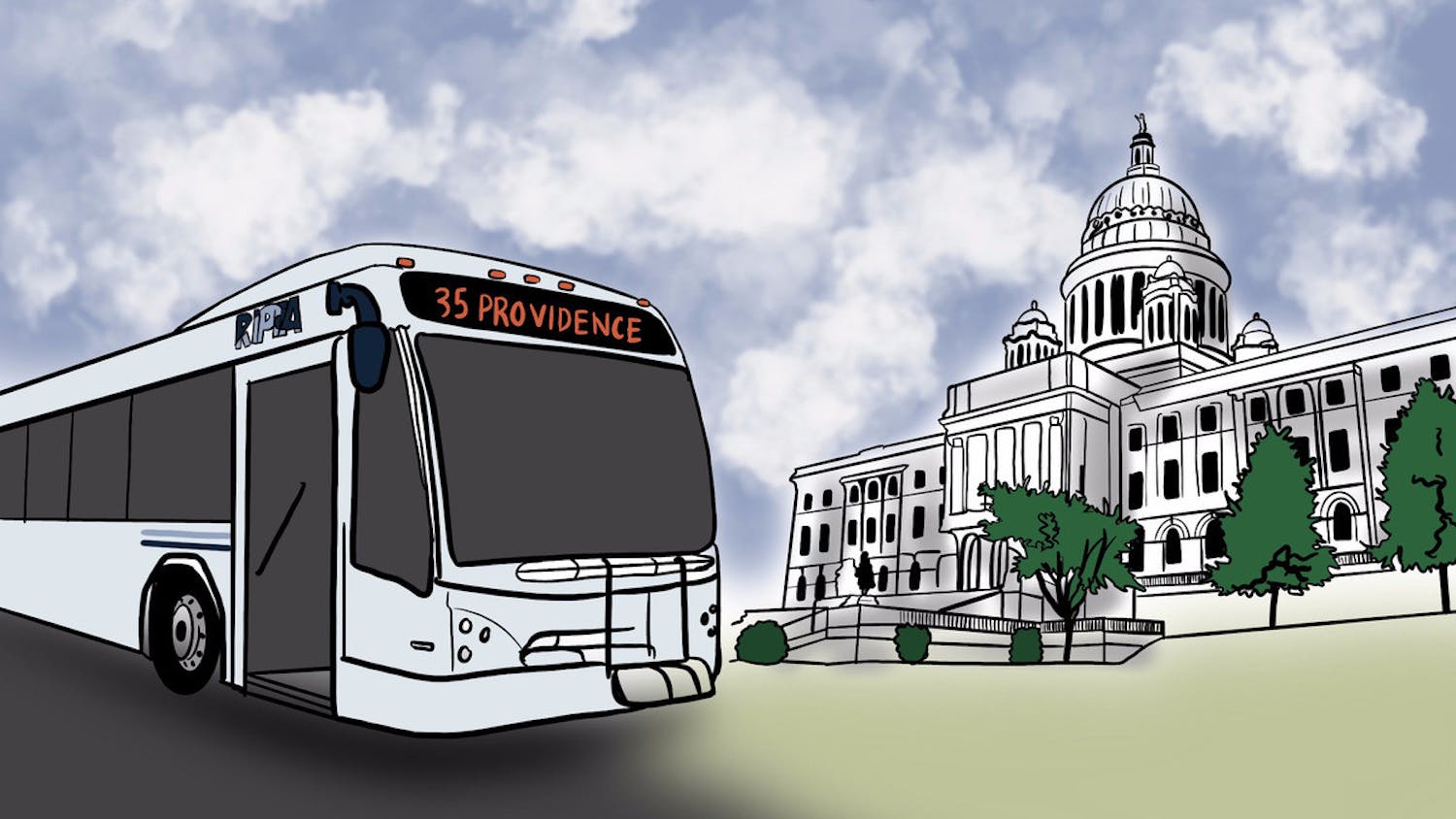Three leading voices in Rhode Island media discussed the state of local and national politics in a panel discussion organized by Common Cause Rhode Island and the Providence Athenaeum Tuesday evening.
The panel, entitled "A Time to Campaign and a Time to Govern," was moderated by Associate Professor of Political Science and Public Policy Wendy Schiller and featured Rhode Island Public Radio reporter Ian Donnis, Providence Journal columnist Ed Fitzpatrick and WPRI.com reporter Ted Nesi.
Schiller opened the discussion by asking the panelists what they think will be the top three political issues in 2013. All three said the number one issue currently is the ailing economy. Rhode Island's unemployment rate in October was 10.4 percent, the second highest in the country.
"The number one issue has been the economy ever since the decline of manufacturing (in Rhode Island)," Donnis said, also questioning whether Gov. Lincoln Chafee '75 P'14 would be a better fit to lead the state during easier economic times. Nesi expressed similar views, saying, "I was going to do the political answer of 'economy, economy, economy.'" Rhode Island was as wealthy as Massachusetts in 1947, Nesi said, though the state's economic prosperity has steadily declined since then.
"Rhode Island is wedged between two of the most wealthy states - Massachusetts and Connecticut," he said, adding that jumpstarting growth in the state is crucial.
Other issues the panelists mentioned were gay marriage, the state improving its national reputation and climate change. "Rhode Island can't deal with (climate change) all on its own," Nesi said. "But it can begin to think about it. We are the Ocean State. In 100 years, the State House could be beach-front property."
The panelists also focused on the role of the now-defunct 38 Studios in Rhode Island, former Red Sox pitcher Curt Schilling's video-game company, which was granted a $75 million loan by the Rhode Island Economic Development Council in 2010. "38 Studios is the posterchild of what not to do with tax incentives," Fitzpatrick said. Donnis commented that he wonders whether it would have been more beneficial to give out 75 $1 million loans rather than giving one $75 million loan.
"After the horrendous decline of 38 Studios, (Rhode Island) could see more talk about economic development," Donnis said.
The panelists were also asked to speak about future elections in the state as well as the potential impact of the large majority of Democrats in the General Assembly. Nesi encouraged people to focus on what is happening within the Democratic Party, with Fitzgerald adding that "there is a huge spectrum within the Democratic Party."
Questions from the audience about local politics focused on what can be done outside of politics to fix the economy as well as the role of tourism in Rhode Island. Nesi said there have been a lot of "bone-headed" decisions made, and "there is no quick fix." Donnis said help to small businesses and focus on education are "a good thing for the future."
"A lot of people come out of Brown and (the Rhode Island School of Design) who could be nurtured," Donnis said.
In terms of tourism, Donnis said, "things like WaterFire can have a big impact."
"We need exports, and tourism is an export," Nesi said. "We should bring in wealth from elsewhere."
"We are the biggest little state in the Union," Fitzpatrick said. "(Rhode Island) needs to keep investing in the state parks and beaches that bring people here."
As the focus switched to federal politics, conversation centered on the fiscal cliff, financial reform and banking. Donnis said the federal government is not working in a way people would like to see and that many people do not like the current state of hyper-partisanship. "It is sad that people who should be able to act like adults spend little time together," Donnis said.
Nesi discussed the "the rise of hyper-partisanship," and Fitzpatrick added that this extends into the role the public plays in shaping national discourse. "Everyone not only has their own sets of opinions but their own sets of facts," he said.
"President Obama needs to be a little more (Lyndon B. Johnson) and less (John F. Kennedy)," Donnis said. Obama needs to "advance his agenda," he said, while being less "cool and distant."
Responding to an audience member's question about whether journalists ask the right questions, the panelists discussed the role of the media today. "It's a great time to be a journalist, but a terrible time to be a newspaper," Nesi said. Fitzgerald said the rise in fact-checkers and data analysis in journalism is a beneficial development.
Schiller ended the discussion on the note that "voters cannot expect more of journalists than they do of themselves."




